Life on Mars, c. 1900: Rainmakers and Unicorns April 20, 2015
Author: Beach Combing | in : Modern
In 1897 one Mr West of Shirland Road, Paddington London began a series of seances to discover the truth about life on Mars. H.G.Wells’ War of the Worlds had just come out and perhaps the ‘spirits’ wanted to calm human fears about the red-skinned ones. In any case, a Martian named Silver Pearl offered to […]
The Earliest African Unicorn Evidence November 8, 2014
Author: Beach Combing | in : Ancient, Medieval
This blog, several years ago, ran a series of posts on unicorns. Here is a late appendix based on reading Cosmas Indicopleustes’ Christian Topography, a work that dated to the mid sixth century of our era. Cosmas was a widely travelled Greek. He had been to Ethiopia and he may have been to Sri Lanka, […]
Giraffes in Medieval China June 4, 2014
Author: Beach Combing | in : Medieval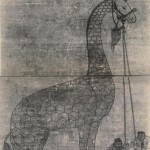
The giraffe, it is hardly necessary to say, is not indigenous to China. Yet from at least the thirteenth century, rumours began to travel back to the Middle Kingdom about a strange, long-necked creature in the west. This beast, sometimes called by the medieval Chinese the Camel-Ox, aroused only moderate interest: did Chinese travellers in […]
Caesar and a German Unicorn? May 14, 2014
Author: Beach Combing | in : Ancient
Karl Shuker has recently put up a post on an ancient cryptoid: the Hercynian Unicorn. KS, always interesting, quotes the work of a German author Markus Bühler (whose work I’ve not read), suggesting that we are dealing with a ‘freak deer’ across the Rhine. However, before conjuring up abberant creatures to explain curious antique references, […]
A Rhinoceros in Eighteenth-Century London November 5, 2011
Author: Beach Combing | in : Ancient, Medieval, Modern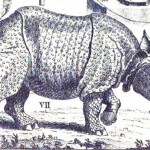
Beach has a longstanding thing about elephants (see many previous posts and many posts to come) and has been wondering recently about opening up a second front on the rhinoceros: a distant reading of a text about Romans importing this beast for their games has been jumping up and down in his head. He […]
First Unicorns? April 6, 2011
Author: Beach Combing | in : Ancient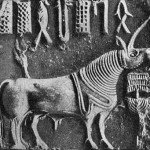
Beachcombing is returning with some relief to familiar territory after the Shakespeare wars of the last couple of days. The subject: unicorns and the earliest human accounts of these mysterious creatures. In the Indus Valley about 3000 BC a series of seals were created that portray an animal with one horn: they predate the mention […]
The Last Unicorn in Medicine February 16, 2011
Author: Beach Combing | in : Medieval, Modern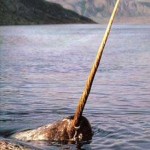
One of the most important things about mythical animals is that they are ‘rare’. Being rare means that anything to do with them is valuable and in previous ages that meant that their body parts were (a) good for showing off and (b) dragged into the world of medicine. Unicorns were particularly appreciated in medicinal […]
Sex Life of Unicorns February 5, 2011
Author: Beach Combing | in : Ancient, Medieval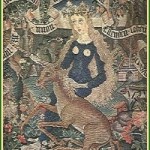
Unicorns have a claim, in Beachcombing’s mind, to be the most interesting of all mythical creatures. There is, after all, a fascinating combination of the mundane – the unicorn is surely based on the rhinoceros? – and the fantastic: think of all that nonsense about a dilating horn and floating hooves. Then there is the […]
Back to the Arabian unicorn December 6, 2010
Author: Beach Combing | in : Contemporary, Medieval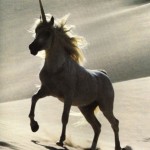
Beachcombing – three long moons ago – ran an article on a European sighting of two unicorns at Mecca (of all places) in the sixteenth century. Given his bewilderment at the time he feels obliged to add this fascinating fragment that he recently stumbled upon. Strangest of all [the mythical beasties of south-west Arabia] is the Tahish. It is a fearsome […]
Unicorns in Sixteenth-Century Arabia? August 11, 2010
Author: Beach Combing | in : Medieval, Modern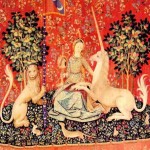
And so we role the dice of history again and this time three words, interesting alone, delectable in combination, appear on the table: ‘Mecca’, ‘unicorn’ and ‘Varthema’. Beachcombing will begin with the least known of these words. Varthema, first name Ludovico (c. 1465-1517) was an explorer from Bologna who in the sixteenth century made his way into […]


